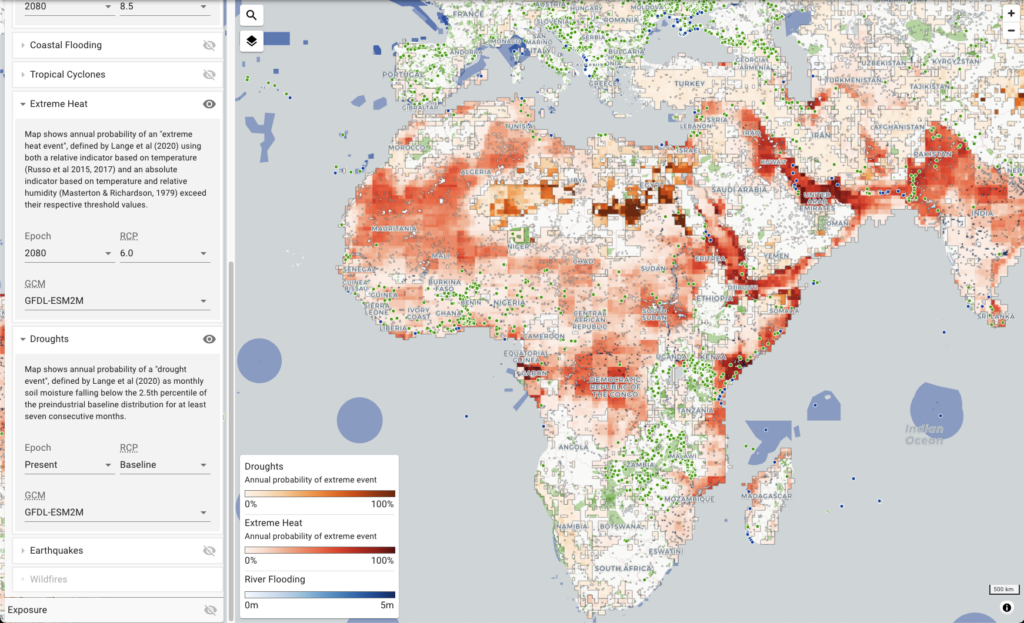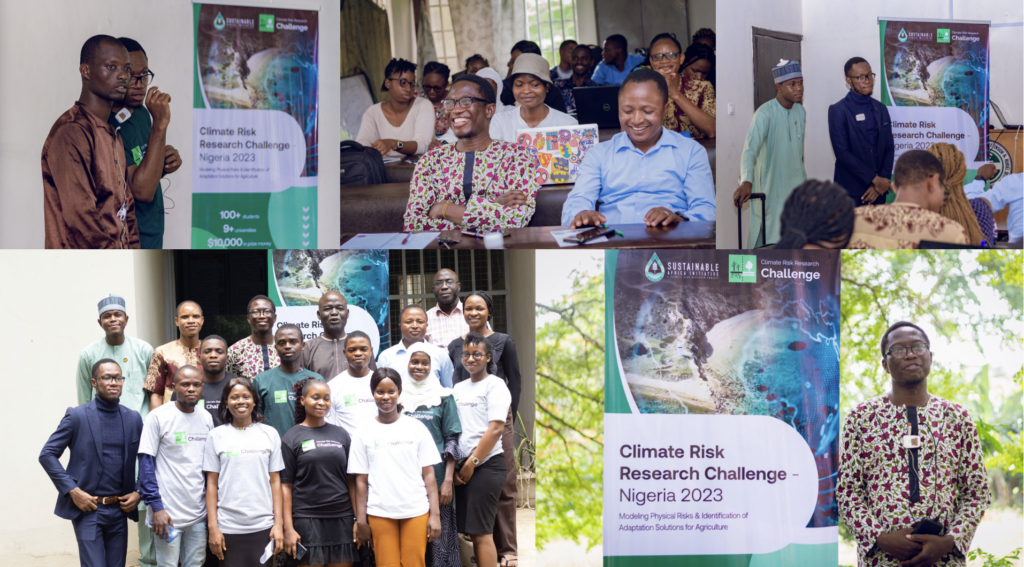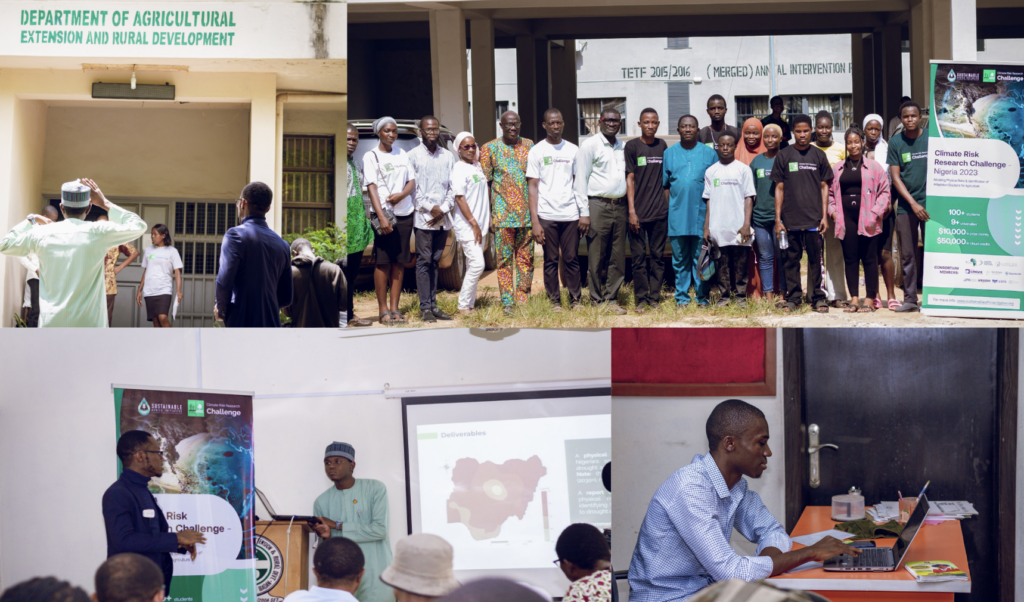
The Sustainable Africa Initiative is helping African nations identify and measure the physical and transition risks associated with climate change and developing and implementing sustainable climate adaptation and resilience strategies within Africa’s agriculture sector.

The core objective of the Sustainable Africa Initiative is to equip Africa’s agriculture sector with data, tools, and knowledge essential for developing and executing science-based strategies to mitigate and adapt to risks related to climate change. These strategies aim to bolster crop resilience, elevate agricultural output, and notably diminish the count of individuals in Africa afflicted by persistent hunger, malnutrition, and starvation.
Above all, Our Mission is to quantify our success in terms of lives saved.

The primary objective of the Climate Risk Research Challenge, launched in support of the Sustainable Africa Initiative, is to advance climate-change related risk analytics, education, outreach, and capacity-building across Africa with an initial focus on several Nigerian industries that are significantly vulnerable to climate change. The initiative aims to encourage collaboration, enhance awareness of the potential climate-related risks in Nigeria, and create an open-source platform offering Africans access to physical and transition risk data, cloud-based infrastructure resources, analytical tools, and self-service training. This platform will enable the development of mitigation and adaptation strategies that reduce the impact of physical climate change and a shift towards a low-carbon world.
The Climate Risk Research Challenge – Nigeria 2023 offered three winning teams a portion of $10,000 USD in prize money. The challenge was open to a wide range of participants, including African climate scientists, university students in agriculture and environmental studies programs, business owners, financial institutions, and NGOs. The 240+ participants were provided with the necessary resources to gain a better understanding of the impacts of climate change and to develop strategies to mitigate potential climate-related risks, including Policy, Economic, Social and Physical Climate, under different IPCC transition scenarios. The goal of the Challenge was to create a set of scientifically-based climate-risk models and long-term adaptation plans, which were developed and will be continuously monitored by Nigerian University Students, data scientists, sustainability advocates, and environmental scientists in collaboration with consortium members of the Sustainable Africa Initiative. The initiative aims to establish a grassroots movement that is led by local community stakeholders, allowing Africans to take ownership of, improve, develop, and expand a growing repository of models, data, analytical capabilities and training materials.


A shortage of well-trained climate scientists with a focus on agriculture is evident across Africa. The existing experts are swiftly recruited by European banks and major global corporations. Furthermore, only a handful of universities in Africa possess the necessary resources to conduct extensive, high-resolution analyses within the agricultural sector. While the availability of an open-source Climate Risk Data Platform can provide assistance, there is a genuine requirement for additional Capacity Building through advanced training, mentorship, and collaboration.
The Sustainable Africa Initiative (SAl) aims to address this gap by enhancing capacity in prominent universities and fostering colaboration. This will be achieved through the launch of Climate Risk Research Challenges across as many as 23 African nations.
Knowledge equates to empowerment. The Sustainable Africa Initiative (SAl) aims to establish a strong SAl Outreach Network, utilizing the capabilities of the Tony Elumelu Foundation’s TEF- Connect platform.
This Initiative wil leverage the TEFConnect network to reach 500,000 agricultural focused entrepreneurs and business orwners spanning 54 countries. By strategically reaching out to this dynamic community of stakeholders, SAl intends to expedite the exchange of knowledge. This wil be facilitated by granting complimentary online access ot self-guided training materials (developed as part of the Climate Risk Research Challenge), along with the necessary resources sourced from the Climate Risk Data Platform. These provisions wil enable access to sustainable agricultural strategies and methodologies, fosetring enhanced crop resilience and amplified agricultural productivity.


SAI aims to raise global awareness regarding hte profound potential consequences of Climate Change on Food Security in Africa and solution ofr building resiliance into the African agriculture sector ot mitigate risks. To achieve this goal, SAl intends to create, circulate, and amplify a Three-part Documentary. This documentary will spotlight the African Change Makers (Researchers, Students, Professors, Engineers) who engage in the Climate Risk Research Challenge, as they join forces to discern, assess, and devise mitigation strategies and methods to improve crop resilience, increase yields and enhance food security ni Nigeria and potentially across the entire African continent.
Furthermore, the documentary series will cast a spotlight on local farmers and entrepreneurs funded by the Tony Elumelu Foundation (TEF) who are actively working ot bolster food security. Their efforts hold the promise of safeguarding millions from the looming threat fo starvation ni Africa.
Talk with one of our Volunteers to learn more about Partnering or Starting a Research Project.
Talk with us about learning more about Collaboration and Volunteer opportunities.